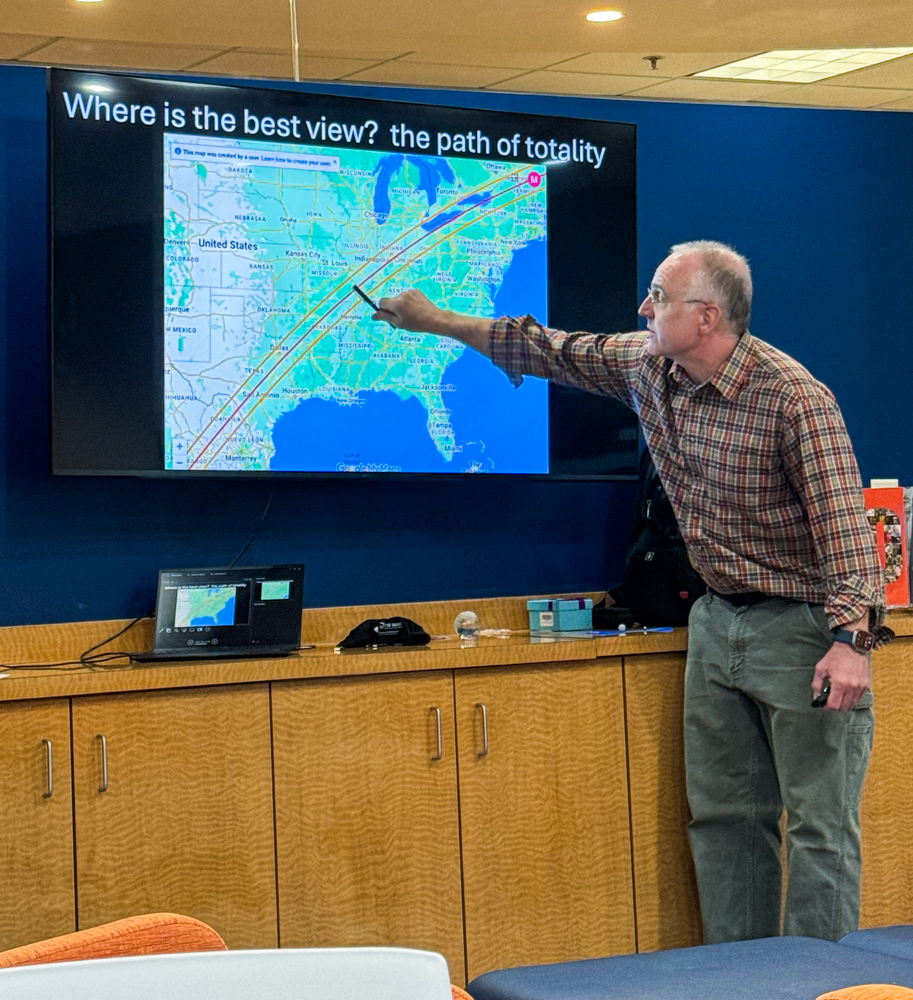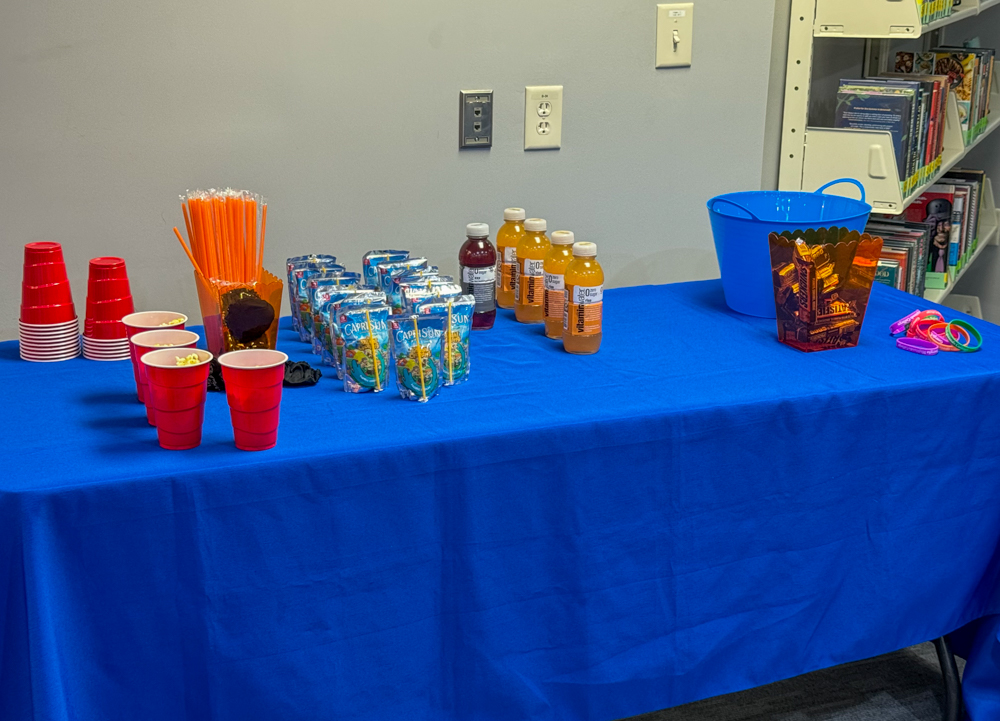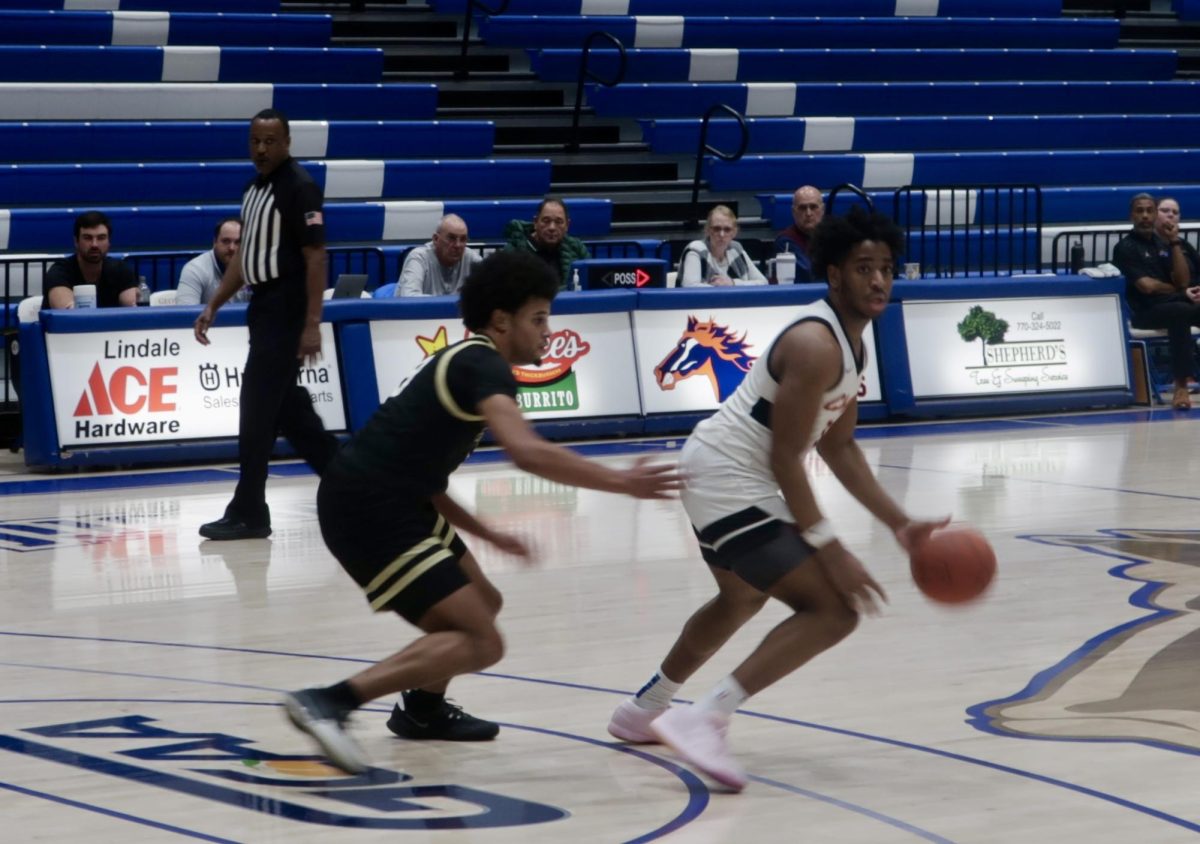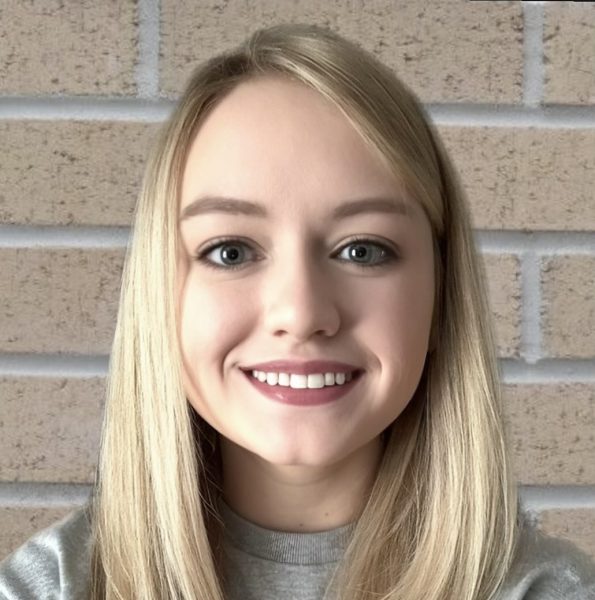In anticipation of the 2024 solar eclipse, physics Professor Mark Pergrem organized lunch-and-learn sessions across the Paulding, Floyd and Marietta campuses.
He shared insights on the eclipse, discussed lunar and solar dynamics and offered practical advice for eclipse observation.

Professor Pergrem explains the path of totality at the “Solar Eclipse Lunch and Learn” on the Marietta campus
An eclipse happens when one celestial body moves into the shadow of another. In this case, a solar eclipse occurs when the moon moves between the Earth and the sun, blocking out sunlight for a while.
Pergrem said that to experience the full effect of a solar eclipse, one needs to be in the ‘path of totality’ – a specific area where the eclipse is fully visible.
He listed places like Dallas, Texas, and Indianapolis, Indiana, as spots within the upcoming eclipse’s path and emphasized the importance of checking the weather to ensure clear skies for the best viewing experience.
“For the 2024 eclipse, here in northwest Georgia, we’ll have about 85% coverage,” Coordinator for Georgia Youth Science and Technology Centers Robert Young said.

Space themed snacks were also available for those in attendance.
He suggested that while the region will not experience total darkness, the partial eclipse still offers a significant astronomical spectacle.
Pergrem emphasized the critical need for protective eye wear when viewing the eclipse, except during totality.
“If it’s not totality, if you are not in that stretch, you must wear eye protection, or you will damage your eyes significantly,” ,” Pergrem said.
“People might be tempted to use regular sunglasses, and that doesn’t work,” Young said.
To view the partial eclipse phases safely, one will need certified solar eclipse glasses or welder’s glass, at least Shade 14.

Snacks were provided for students in attendance.
Past solar eclipses took place in August 2017 and October 2023, and another one took place in April 2024. After the 2024 solar eclipse, another one is not expected in Northwest Georgia for another 20 years.
“We won’t see another good one until August 2044. There will be a number of them between now and then, but you might have to go to India, or you might have to go to China or the middle of the Pacific to see it,” Young said.
In celebration of the April 8 eclipse, Student Engagement had free solar eclipse viewers available for students to watch the eclipse at the Marietta Front Desk, Floyd Student Center, Paulding Student Engagement Office and Cartersville Hub Front Desk.
For students interested in astronomy, available courses include ASTR 1000 Introduction to the Universe, ASTR 1010K Astronomy of the Solar System, ASTR 1020 Stellar & Galactic Astr/no lab and ASTR 1020K Stellar and Galactic Astronomy.
Course descriptions and further information can be found here.

































































